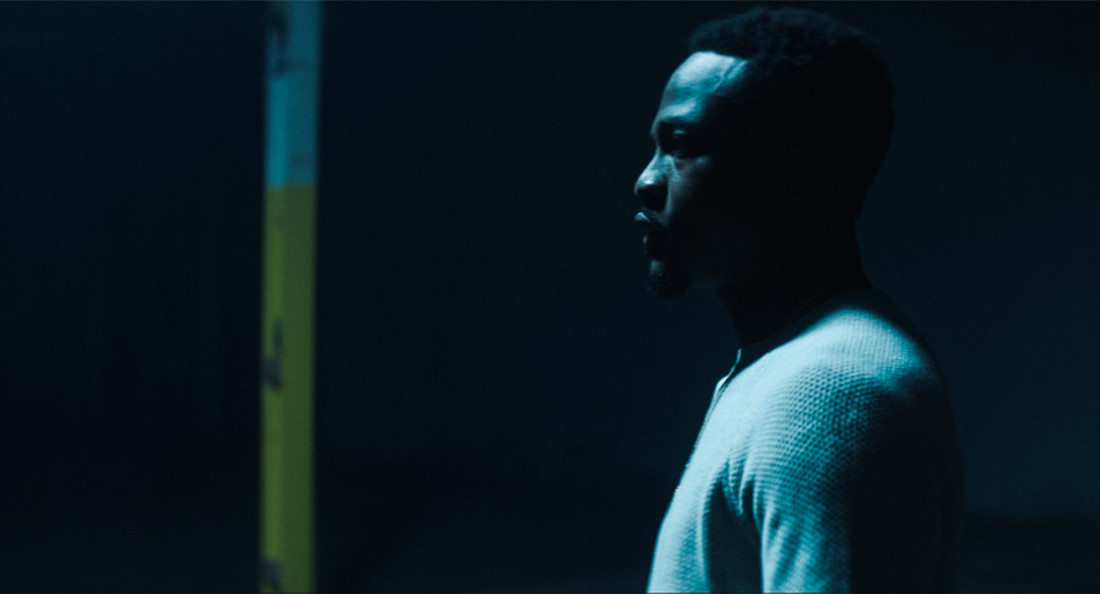Black-made films deserve Canada’s attention
Media hush surrounding Black Bodies indicates lack of support for Black filmmakers
This winter, only six Canadian productions made it into the prestigious Sundance Film Festival. Black Bodies, directed by Kelly Fyffe-Marshall, was one of them.
The politically charged short film features artists Donisha Prendergast and Komi Olaf. Olaf stands in a dark room performing spoken-word poetry about systemic anti-Black racism at the hands of law enforcement.
As Olaf’s words about the continual harm caused by racism resound, the lifeless bodies of Black people lay on the ground, representing victims of police violence. Olaf, too, is targeted by this violence and falls. Yet his voice continues, asking the audience: “What becomes of the babies left behind? The mothers left to cry?”
Fyffe-Marshall describes her work as “impact cinema” and intends to create projects that give people opportunities to open their minds to new ideas they may have never considered.
“I wanted to be a filmmaker ... specifically an impact filmmaker, because I saw people sit down and watch films, and I saw how much power was there, because people let their guard down. And I realized I could use that moment to impact their lives,” Fyffe-Marshall says.
The film was not only inspired by the epidemic of racist police violence, but additionally by a 2018 incident that Fyffe-Marshall, Prendergast and Olaf experienced while checking out of their Airbnb in California. A neighbour witnessed the group packing up, falsely assumed they were breaking into the house, and the group quickly found themselves surrounded by police.
The situation de-escalated without anyone experiencing physical harm. However, the impact on the group of artists was significant. Fyffe-Marshall felt a responsibility to use her platform for activism, and, through this, Black Bodies was born.
Black Bodies won the Changemaker Award from the Toronto International Film Festival (TIFF) when it premiered there in 2020. Yet, despite Black Bodies’ success at TIFF and the fact it was created by an all-Black, women-led team, the film received little media coverage in Canada until Hollywood director Ava DuVernay gave it a shoutout on Twitter.
Fyffe-Marshall highlights how important media attention is, particularly for Black Canadian filmmakers, but also for all Canadian filmmakers in general.
“We need the media to push us so we can get the coverage, and then, in turn, that’s how you get the grants – because you have a presence.”
Ben Williams, outreach and marketing director of Afro Prairie Film Festival, agrees that support for Black filmmakers in Canada needs to improve drastically.
Williams formerly served as the production centre director for the Winnipeg Film Group and recollects how, in the six years he was there, he only remembers working alongside five Black filmmakers.
“There’s the lack of us, and then there’s the fact that when our films are shown at certain festivals, what happens a lot of times is (films by Black artists) will have their festival run, and then there’s no more real interest beyond that.”
Afro Prairie, the newly incorporated project of Black Space Winnipeg, is notably the only film festival dedicated to sharing Black-made films in the Prairies. Movie lovers can look forward to a virtual program from Afro Prairie sometime this spring, Williams says.
Marathon, Fyffe-Marshall’s companion film to Black Bodies can be found at kellyfyffemarshall.com.
Published in Volume 75, Number 21 of The Uniter (March 11, 2021)






